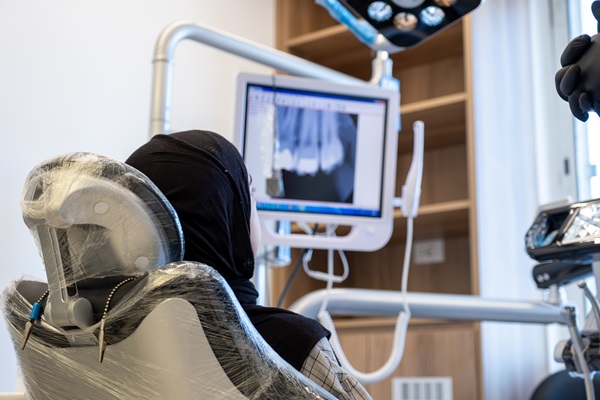How Root Canals Save Your Natural Tooth

Patients who are scheduled for a root canal may wonder whether such a procedure is necessary. A root canal can save your natural tooth and prevent you from needing a replacement, such as a dental implant or denture. So, while you might not choose to get a root canal for fun, it is a useful service offered by a general dentist to ensure the long-term viability of your teeth following decay, injury, or infection.
Saving a natural tooth with a root canal
Root canals entail using small drills to access the inside of a tooth, called the pulp chamber. The dentist removes the contents of the pulp chamber before filling the tooth with a new material and closing the entry hole. This process has numerous advantages that can mean a longer life for a patient's tooth.
Prevents further decay
In many cases, a root canal becomes necessary after decay has compromised the pulp chamber. If a cavity extends deep enough into the tooth, it can create a pathway through which bacteria can travel to reach the blood vessels and nerves inside the tooth.
When doing a root canal, the dentist removes the bacteria and closes off the access point to the interior of the tooth. This stops internal decay so the tooth can remain strong for years to come.
Strengthens the tooth’s structure
Once a tooth begins to weaken, it becomes vulnerable to decay, infection, cracking, and other issues. When a dentist opens the tooth and then empties and refills it, they strengthen its structure to prevent it from breaking during use.
The material inserted into the empty pulp chamber is called gutta-percha. This rubber-like material fills the entire space so the tooth is not hollow and brittle. This is how the tooth that has had a root canal can enjoy many more years of life without the patient worrying that it will crack during chewing or speaking.
Avoids systemic infection
A compromised pulp is a problem because it often causes soreness in the mouth and affects the patient’s overall health. Bacteria residing in the pulp chamber can no longer be brushed away, so they are free to populate and produce waste, which can lead to infection.
An infection inside a living tooth has access to that tooth’s blood vessels, which it can use to travel to other parts of the body through the circulatory system. Certain health issues, such as heart disease, can share a link with oral infections. Therefore, using a root canal to eliminate the infection and seal off the tooth can also preserve patients’ overall health.
Get your root canal as soon as possible
If you need a root canal, the best time to get one is now. Waiting enables bacteria to potentially spread infection to other parts of the body, and the tooth might not survive the ordeal. Getting a root canal can allow you to keep your natural tooth for many more years, so contact our office to schedule your treatment today so we can save your tooth!
Request an appointment here: https://www.fairfaxdentalcenter.com or call Fairfax Dental Center at (703) 246-1507 for an appointment in our Fairfax office.
Check out what others are saying about our dental services on Yelp: Root Canal in Fairfax, VA.
Related Posts
Invisalign® is increasingly becoming a very popular teeth-straightening treatment option. The process is simple and relatively comfortable, which is why it is growing in popularity. However, because it is not as old or traditional as braces, it can be helpful to get familiar with how exactly the process works. Keep reading to learn more about…
Full mouth reconstruction involves replacing and repairing damaged or missing teeth. A treatment plan includes a variety of different treatments, and one common procedure is known as dental bridge treatment. This review takes a closer look at how general dentists use dental bridges to replace teeth during full mouth reconstruction. Most patients have several available treatment…
A broken dental crown is often a sudden issue. Dental crowns are permanent dental restorations. A crown may dislodge because of an injury, an accident, wear, or even old age. The dentist will determine if your crown needs repairs or a replacement. If you want to know what the dentist does to repair or replace…
3D dental scans are revolutionizing the way dentists diagnose and treat a wide range of oral health conditions. Unlike traditional X-rays, 3D dental scans provide a detailed, three-dimensional view of the teeth, jaw, and surrounding structures, enabling more accurate diagnoses and precise treatment planning. This advanced imaging technology is becoming vital in modern dentistry, enhancing…
